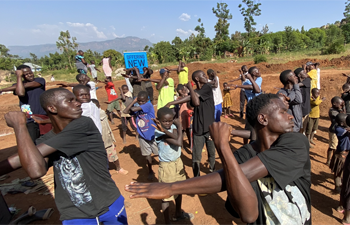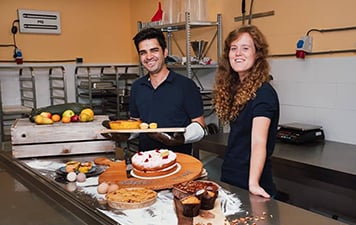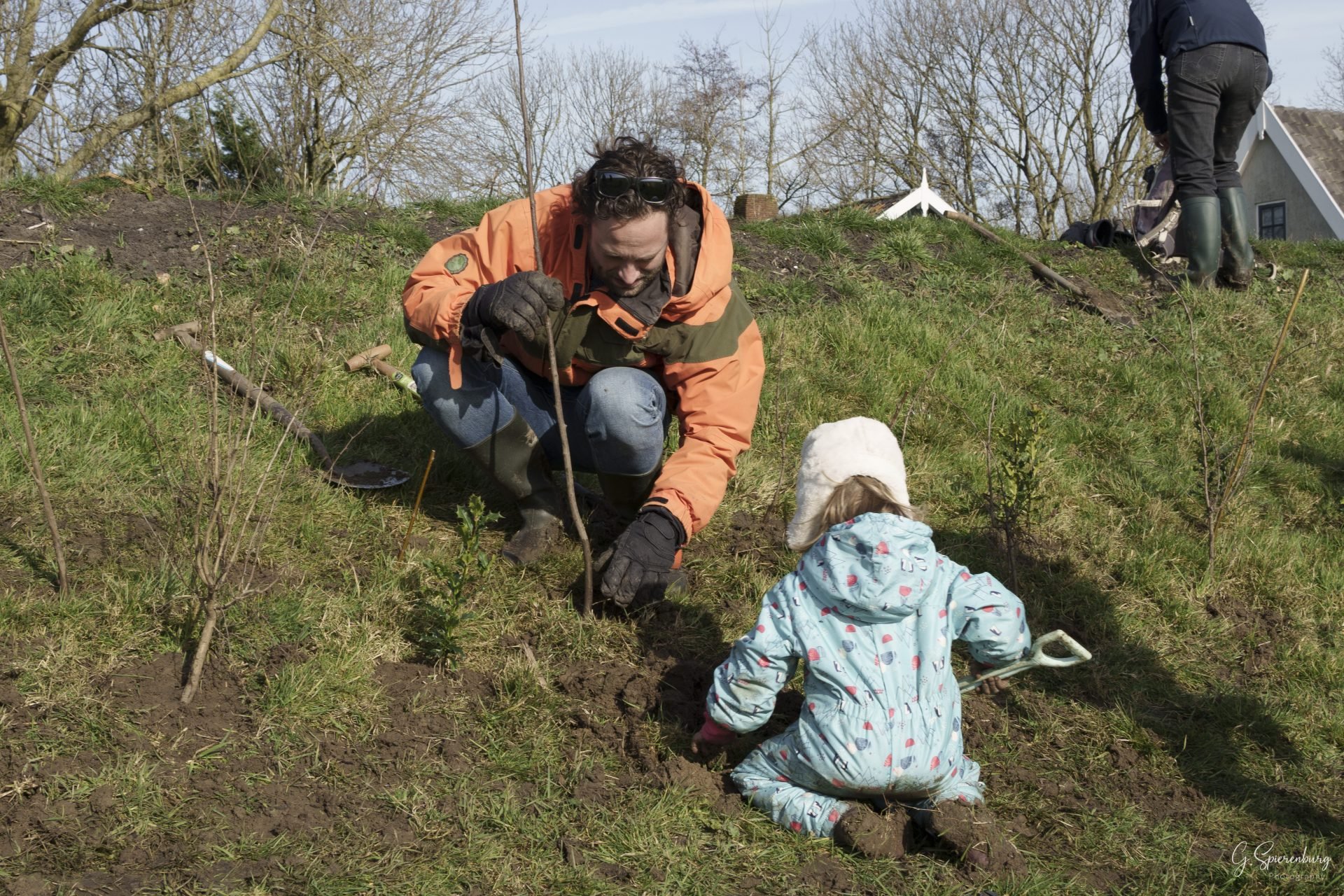Creating professional opportunities for newcomers through cooperation and sustainable textile production is the goal of Makers Unite. They use a talent development programme to help residence permit holders with a creative background find their place in the Dutch creative sector. They become part of the community and where possible, establish links to creative companies. Thami Schweichler, one of the initiators of Makers Unite, explains how this social enterprise has become so successful and outlines their plans for the future.
“How can we create a great company that offers opportunities to such amazing talent?” Thami asked himself that question in 2016 when many talented refugees came to the Netherlands, but had few opportunities to put their talents to use. Thami was born and raised in Brazil, studied Social Design in France and worked in Kenya. There he learned how to find commercial solutions to social problems in order to stimulate sustainable change. He coupled that experience with his desire to help newcomers, and Makers Unite was born.
What started as an activist campaign on King’s Day has now grown into a movement. Thami: “Today, we’re an internationally recognised production company that has mentored almost 200 newcomers. We work with major international brands such as Ben & Jerry’s and Filling Pieces, who, like us, believe that things can be done differently: fashion can be more sustainable and our society more inclusive.”
A commercial solution to a social problem
In the studio in Amsterdam, creative newcomers and locals work together on sustainable textile products. As part of an intensive six-week talent development programme, they work on circular textile projects, which started with their own collection of bags made from old life jackets from Greece. A team of newcomers with textile experience works together on assignments from companies looking for responsible merchandise.
The newcomers are the starting point and the core of Makers Unite. “We keep in touch with everyone who starts with us,” says Thami. “And if, for example, Ben & Jerry’s wants a new collection and they need a designer, we put out a call in our community. This is how we win nice contracts, give our community a chance and offer customers valuable support.”
Circular textile partner
One of their shared dreams is to make products using only sustainable or recycled materials. “We started by upcycling life jackets from the Greek islands. We gained a lot of knowledge with that experience. More and more organisations want to become more sustainable or even circular. We can help them with that,” explains Thami.
When the coronavirus pandemic hit, Makers Unite immediately got to work to help healthcare. They made 33,000 protective suits and 10,000 face masks. As unpleasant as the crisis is, it has also brought good things, says Thami. He was invited to join a City of Amsterdam team to examine the opportunities the pandemic might offer for sustainability. “That would never have happened without the pandemic. There is much more positive energy and willingness to work towards a sustainable, fair and socially inclusive society.”
Cooperation
As a start-up social enterprise with a commercial model, it was difficult to get support. Yet it was clear to Thami that he wanted a commercial model for his social enterprise. “If you don’t deliver in a commercial business, the business gets into trouble immediately. The key is to ensure that the participants feel genuinely connected to the company. This creates a positive dynamic of cooperation instead of assistance.”
The DOEN Foundation was the first party to believe in Makers Unite’s innovative model and growth potential. “At that time, the DOEN grant was really crucial for us,” says Thami. At the end of 2020, Makers Unite received a commercial investment from DOEN Participaties. But DOEN’s support is more than just financial. “The cooperation is extremely valuable. DOEN’s employees are engaged, interested and flexible. They swap ideas with us about how to stay close to our impact goal, which is incredibly helpful.”
International impact
With the support of DOEN Participaties, the company can increase its production capacity and take the first step towards international production and international impact. “We have a number of start-up projects in Italy and also want to start producing in the Middle East, to offer opportunities to newcomers there.”
If, like Thami, you hope to make the world a better place, his tip is: “Just start, do it. So many people have good ideas, but don’t dare to start. Dare to take that first step.”


